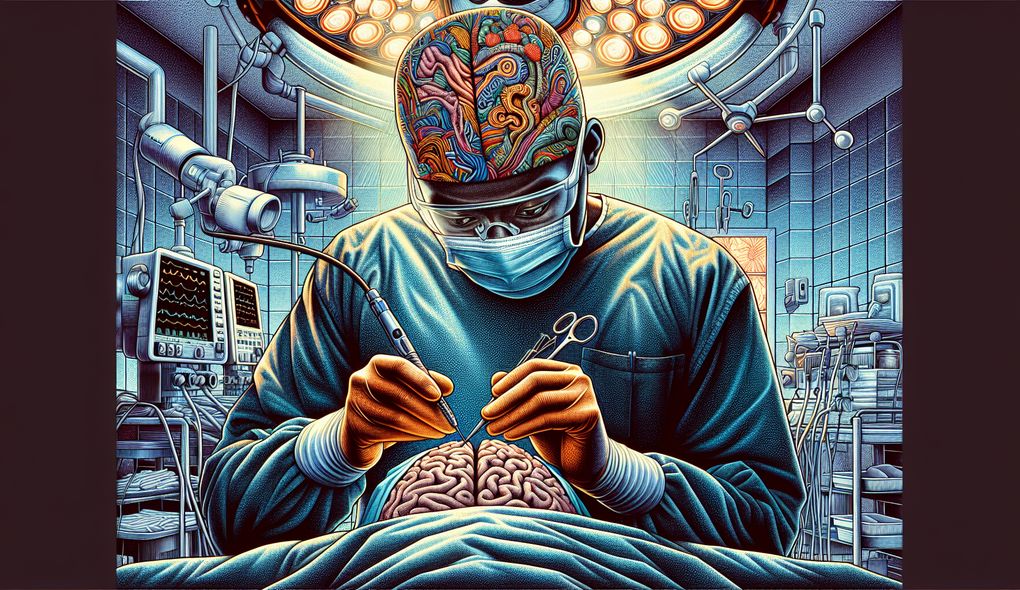Tell me about a time when you had to make a difficult ethical decision in your practice.
INTERMEDIATE LEVEL

Sample answer to the question:
I once had to make a difficult ethical decision when a patient with a neurological disorder needed an urgent surgery, but their family strongly insisted on exploring alternative, non-surgical treatments. It was a challenging situation as I wanted to respect the patient's autonomy and their family's wishes, but I also had a responsibility to provide the best possible care. After extensive discussions with the family and presenting them with all the available information, including the potential risks and benefits of the surgery, we reached a consensus to proceed with the surgery. It was a tough decision, but ultimately, the patient's health and well-being were the priority.
Here is a more solid answer:
During my practice as a neurosurgeon, I encountered a challenging ethical decision when a patient with a rare brain tumor presented with debilitating symptoms. The patient's family strongly believed in alternative therapies and were hesitant about surgery. Understanding the urgency of the situation and the potential risks of delaying treatment, I engaged in empathetic and transparent communication with the family. I provided them with a detailed explanation of the patient's condition, the standard treatment options, and the risks involved. I also connected them with other healthcare professionals who could provide additional perspectives. After several thoughtful discussions, the family agreed to proceed with surgery. It was a difficult decision, but my strong understanding of neuroanatomy and neurological diseases allowed me to clearly articulate the potential benefits of surgery and address any concerns raised by the family. Ultimately, the patient underwent a successful surgery and experienced an improved quality of life.
Why is this a more solid answer?
The solid answer provides more specific details about the ethical dilemma, including the rare brain tumor case and the family's hesitations about surgery. It also highlights the candidate's expertise in neuroanatomy by emphasizing their ability to clearly explain the condition and treatment options to the family. The answer demonstrates the candidate's effective communication skills in engaging in transparent and empathetic conversations with the family. However, it can still be improved by discussing any challenges faced during the decision-making process and how the candidate managed to make a critical decision under pressure.
An example of a exceptional answer:
I faced a difficult ethical decision during my practice as a neurosurgeon when I encountered a patient with a life-threatening spinal cord injury. The patient's family expressed concerns about the long-term consequences of surgery and questioned the potential benefits. It was a high-pressure situation as any delay in treatment could have led to irreversible damage. To address their concerns, I organized a multidisciplinary meeting with the patient's family, including neurologists, physiotherapists, and other healthcare professionals, to provide a comprehensive overview of the injury and the available treatment options. Through collaborative discussions, we addressed the family's questions and fears, ensuring that they had a clear understanding of the risks and benefits. I also shared case studies and success stories of similar surgeries to instill confidence in the family. After careful consideration, they decided to proceed with the surgery. This exceptional decision-making process showcased my strong understanding of neuroanatomy and neurological diseases, as well as my ability to make critical decisions under pressure. Effectively communicating with the family played a crucial role in building trust and achieving a consensus regarding their loved one's care.
Why is this an exceptional answer?
The exceptional answer provides a detailed account of the ethical decision-making process, including how the candidate organized a multidisciplinary meeting to address the family's concerns and involve other healthcare professionals. It demonstrates the candidate's exceptional understanding of neuroanatomy and ability to make critical decisions under pressure by emphasizing the high stakes involved in the situation. The answer also showcases the candidate's effective communication skills by mentioning the use of case studies and success stories to build trust and instill confidence in the family. Overall, the exceptional answer provides a comprehensive and compelling response to the question.
How to prepare for this question:
- 1. Reflect on past experiences: Think about any ethical dilemmas you have encountered in your practice, especially those related to patient care and treatment decisions. Consider the context, the challenges faced, and the outcomes of your decisions.
- 2. Familiarize yourself with ethical guidelines: Review the ethical principles and guidelines relevant to your field, such as those provided by professional medical associations. Understand how these principles apply to real-life situations.
- 3. Practice storytelling: Craft a compelling narrative that highlights your ability to navigate difficult ethical decisions. Focus on providing specific details, such as patient cases, communication strategies used, and the impact of your decisions.
- 4. Enhance your communication skills: Effective communication is key in addressing ethical concerns with patients and their families. Practice active listening, empathy, and the ability to explain complex medical information in a clear and understandable manner.
- 5. Stay updated on advancements in your field: Keep abreast of the latest research and advancements in neurosurgery. This knowledge will not only enhance your decision-making abilities but also enable you to provide evidence-based explanations to patients and their families.
What are interviewers evaluating with this question?
- Strong understanding of neuroanatomy and neurological diseases
- Ability to make critical decisions under pressure
- Effective communication skills

